Written by Kimerly Coshow, PhD (pictured far right) for the Davis Phinney Foundation Dream Big series
“Go confidently in the direction of your dreams, live the life you’ve imagined.”
–Henry David Thoreau
What does “dreaming big” mean to you?
When I was young my mom always used to say that I “beat to a different drum.” This quote was one of my favorites and one that I still quote to myself often. But what does it mean to dream big?
One thing I do know is that following your dreams connects you to your inner self, as you seek your own purpose in life. Perhaps that’s why it’s hard for some who have been diagnosed with Parkinson’s to settle for small, little or no dreams at all.
How did your dreams and personal goals change after being diagnosed with Parkinson’s?
Every morning brings a new fresh day! So, dream big. You have a choice in the matter. Sure, we might have goals or dreams that seem too difficult to achieve with Parkinson’s. We might come face to face with failure, fear and physical challenges that lead us down a path of never even attempting to accomplish our ultimate dreams. But even if it means we take small steps along the journey by scheduling around medication, fatigue, tremors and the endless list of Parkinson’s symptoms, what matters is the choice to try and to keep moving forward!
What would you say to a fellow person with Parkinson’s who might be afraid to “dream big”?
Big dreams can be a series of small goals that ultimately lead you on the path to achieve your big dreams. Don’t discount a change in path or a bump in the road. Treat these as goals to overcome. Don’t settle for dreams that just remain dreams. Have a strong belief in yourself, faith that you can achieve and courage to give it a try. When we follow our dreams, we follow our true calling. Sharing those gifts with others can truly change your life!
During my 17 years on this journey of Parkinson’s, I’ve learned that things change, life changes and where my faith is leading me changes as well. Remaining open to possibilities I never dreamed of has opened many doors. While this might bring on some apprehension, I try to remember that big dreams can push my limits but also fill my life with excitement, joy and gratitude. You’ll achieve more as you follow this excitement and having faith in saying “Yes I can” will uncover amazing strength and purpose in your life.
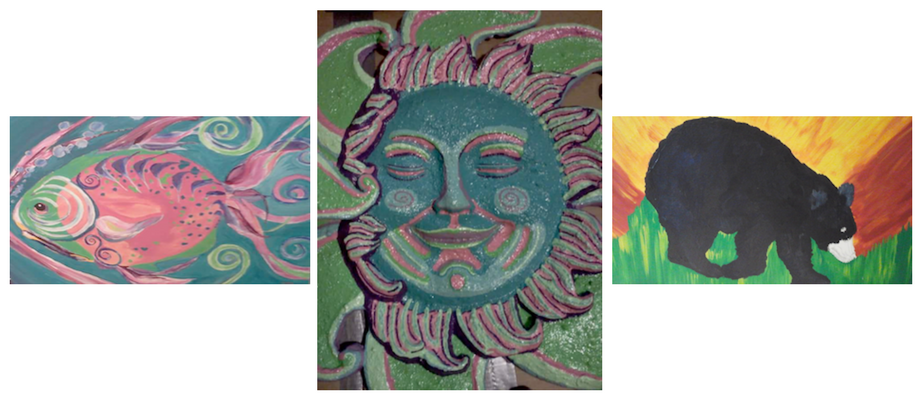
I was given an opportunity to share my gift of painting with children and youth in my community. This is a big dream that has gifted my heart and soul. It has given me an opportunity to merge generations, educate others about Parkinson’s and share a common goal in this ever changing world. For me, it’s the right thing to do. Big dreams are how the world changes for the better. They’re the impetus behind great inventions, cures for diseases, education, advocacy and so many things that make all of our lives better.
Big Dreams give you the opportunity to truly leave your mark on the world!
“I dream of painting and then I paint my dream”
—Vincent Van Gogh
Read the rest of the stories in this series here.


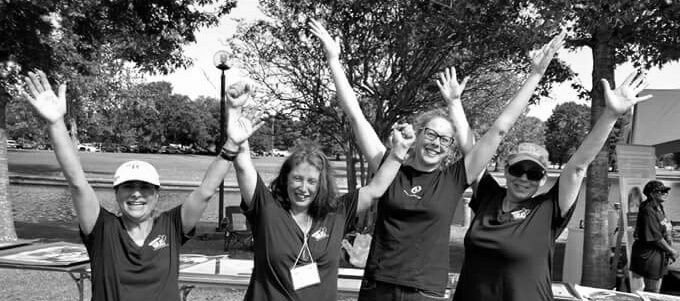

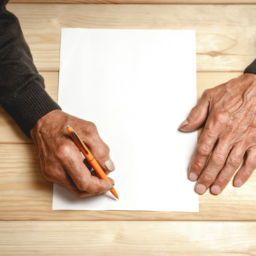


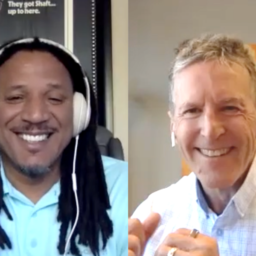
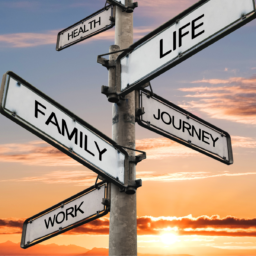
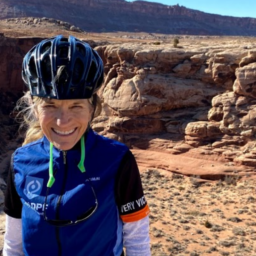
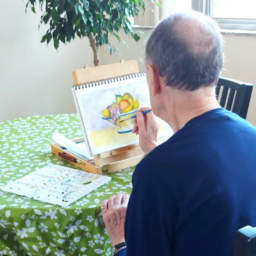
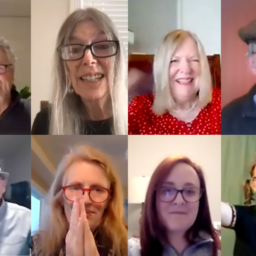
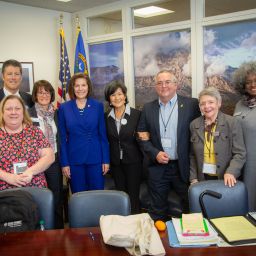
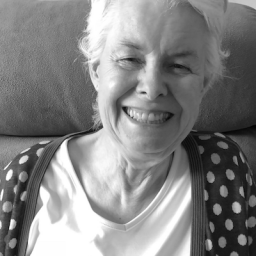
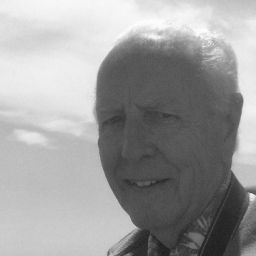

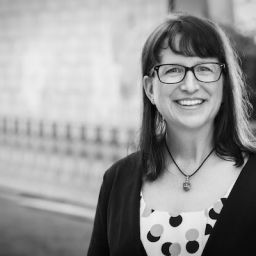
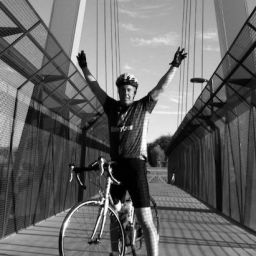
Such heartfelt feelings and a warm essay for anyone suffering from Parkinson’s or any other debilitating disease without a cure. You make me proud to be your mother. My hero, love you to death.
Hello my name is Alejandra.
I would like to share my story with you. Three years ago, at the age of 28 I was diagnosed with Parkinson’s disease (PD). As you can imagine I was devastated, a very understanding reaction. I, in comparison with a lot of people that get this diagnosis, knew what PD looked like as where most people don’t know what awaits. I fall under a genetic form of Parkinson’s and I have 8 family members with PD. I had suspected PD for a couple of years but never came with the idea that I would in-fact have Parkinson’s. I started to develop symptoms that I knew were not normal and also associated them family members who had PD. I went to my primary doctor during and during an allergy visit, I mentioned to him the symptoms I was having (stiff legs, painful cramps in my calfs, loss of smell, and numbness on my entire body). He asked me what I thought and I said, “I’m afraid it might be PD, as it runs in my family and I recognize the symptoms.” He said he didn’t know anything about Parkinson’s but that he would send me with a very good neurologist. One month later I visited Dr. Moschonas and he had me do various physical movements and asked me questions. He told me he did not want to label me as I was very young and that I looked overall OK but that he did see saw a few things that worried him (like my decreased arm swing). He said he would send me to have a DAT Scan of my brain done and if that showed OK that then we would get an MRI of my brian. I went back to see Dr. Moschonas a couple of weeks later to review my DAT Scan results.His nurse practioner was seeing me that day and when she started viewing my results on her computer, she excused herself out of the room. About 3 minutes later Dr. Moschonas waked in. It was then that I received my diagnosis. Dr. Moschonas was the best at explaining to me how he had came up with the diagnosis, what medication I would take and why. He emphasized that I would not have my family’s quality of life, that I was going to have a very good quality of life. He said he thought and hoped that my PD would advance very slowly (if that). He gave me advice that I follow up to this date “live your life the same way you have been doing, don’t stop, do that for as long as you can.” He also ordered a genetic testing, which shows I have the PARK2 gene.
At first I did not want to tell anyone outside of my immediate family members but it didn’t take long, it took about two months for me to realize that I couldn’t hide my diagnosis, that I couldn’t be depressed by myself and most of all that my family had been significantly affected by PD and that I was not about to be affected in that way. I stopped researching online, which I had done for the past two months. I went to the Muhammad Ali Parkinson center, becauseI wanted to go somewhere that I could go and get educated in person and go to a place where I knew the information would be correct versus online. The day I got to the Muhammad Ali Parkinson Center, I met Patti and she was wonderful at explaining what PD was. She answered all of the questions I had at the time. She then introduced me to Claudia (coordinator of hispanic outreach programs). When we were introduced we hugged each other, like latinas do. Claudia started encouraging me to become involved in the PD community. She told me I was young and she liked my attitude. Within two months, I was already a volunteer at the Muhammad Ali Parkinson Center. I helped Claudia along with other wonderful volunteers and organized educational/awareness events for the hispanic PD community. I
Then became interested in learning more; I refused to live a life similar to what my family members had to live, a life full of embarrassment from a disease they had no fault on having. A life full of pain and suffering due to the lack of information and support. I applied for the first Women & PD conference the Parkinson Disease Foundation was organizing. I was accepted and flew to New Jersey, where I met amazing women with PD from all over the US. For three days we learned from recognized medical professionals about how PD affected women specifically. I then also attended the 2016 Parkinson Action Network forum in Washington DC, where we along with hundreds of PD advocates, went to Capital Hill to ask congress for more funds for PD research, for a national database of people with PD and for approval from insurance companies for telemedicine. I then went to the Parkinson World Congress (WPC) along with Claudia and other volunteers from the MAPC. The WPC was an amazing experience. I met so many people in this same fight and learned about a hopeful future for all of us. Later I participated in a pilot program also from the PDF, PD SELF. This is a program that is thought by a professional and a person with PD to people recently diagnosed with PD. Claudia and myself were the only group that would deliver the course in Spanish.
I am now an ambassador for the 5th Parkinson World Congress, which will be held in Japan in June 2019. I am the only hispanic ambassador. Everything that I do, I do knowing that I am empowering myself over my health and empowering others over their health as well and that brings great warmth to my heart. I wish that someone would have given my family members the information they desperately needed to live better with PD but I have no control over that, what I can do and do is help others live a better quality of life.
Thank you for sharing your story, Alejandra! If you would like to be featured on our blog, take a moment to fill out our Moments of Victory Form. Keep being an advocate and spreading information and tools that encourage people to live well with Parkinson’s. We look forward to meeting you at the World Parkinson Congress in Japan!